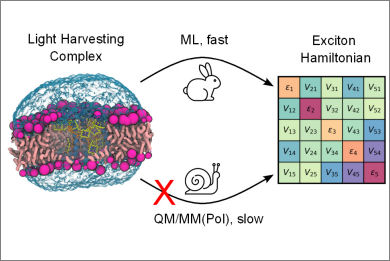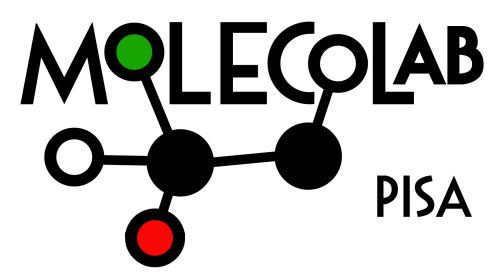
We propose a machine learning (ML)-based strategy for an inexpensive calculation of excitonic properties of light-harvesting complexes (LHCs). The strategy uses classical molecular dynamics simulations of LHCs in their natural environment in combination with ML prediction of the excitonic Hamiltonian of the embedded aggregate of pigments. The proposed ML model can reproduce the effects of geometrical fluctuations together with those due to electrostatic and polarization interactions between the pigments and the protein. The training is performed on the chlorophylls of the major LHC of plants, but we demonstrate that the model is able to extrapolate well beyond the initial training set. Moreover, the accuracy in predicting the effects of the environment is tested on the simulation of the small changes observed in the absorption spectra of the wild-type and a mutant of a minor LHC.
Link: https://pubs.acs.org/doi/full/10.1021/acs.jctc.2c01044

